You
might
suffer
from
imposter
syndrome
and
feel
like
you
have
no
idea
what
you’re
doing,
but
at
least
you
didn’t
cost
your
Biglaw
firm
$62
million.
So
you’re
doing
better
than
Husch
Blackwell
partner
Charles
Renner.
According
to
reporting
by
the
Kansas
City
Star,
Husch
Blackwell
found
itself
on
the
losing
end
of
an
arbitration
against
engineering
firm
Burns
&
McDonnell.
The
engineering
firm
blames
Husch
Blackwell
and
Renner
for
losing
out
on
a
contract
to
build
the
new
Kansas
City
airport,
arguing
that
Renner
used
his
position
as
outside
counsel
for
the
city
council
to
tank
Burns
&
McDonnell’s
bid
in
favor
of
Edgemoor
Infrastructure
and
Real
Estate,
a
company
Renner
represented.
But
the
story
gets
even
messier
—
that’s
because
Husch
Blackwell
and
partner
Ken
Slavens
have
represented
Burns
&
McDonnell
since
1981.
In
fact,
between
2007
and
2017,
Husch
Blackwell
sought
conflict
of
interest
waivers
11
different
times
from
Burns
&
McDonnell,
something
that
weighed
in
the
engineering
firm’s
favor,
according
to
the
arbitration
panel.
In
2017,
Burns
&
McDonnell
began
conversations
with
city
officials
about
a
“sole-source”
airport
proposal
where
they
would
raise
the
funding
for
the
project
—
initial
projections
for
the
amount
of
public
funding
required
for
the
project
proved
politically
untenable
—
and
receive
an
exclusive
contract
for
the
airport.
When
these
behind-closed-door
negotiations
became
public,
that’s
when
Burns
&
McDonnell
says
the
sabotage
began.
When
word
of
a
possible
deal
began
to
leak,
Renner,
an
attorney
specializing
in
public-private
partnerships,
pitched
his
services
to
Burns
&
McDonnell.
Would
their
firm
be
interested
in
retaining
him
and
Husch
Blackwell
for
the
KCI
project?
“Renner’s
email
solicitation
was
politely
declined,”
the
panel
writes.
The
following
day
—
May
11,
2017
—
Renner
began
pitching
council
members
on
hiring
him
and
Husch
Blackwell
as
outside
counsel
for
the
city
on
the
airport
project.
He
also
offered
his
opinion
that
Burns
&
McDonnell’s
no-bid
deal
would
be
bad
for
the
city
and
that
it
should
be
opened
up
for
a
competitive
bid
process.
Renner
was
quoted
in
a
May
12,
2017,
KSHB
story
on
the
airport
proposal
and
was
critical
of
it.
This
raised
the
attention
of
Burns
&
McDonnell’s
in-house
counsel
who
asked
Slavens
about
it.
However,
internal
documents
quoted
in
the
arbitration
panel’s
decision
reveal
Renner
denied
talking
to
the
press
about
the
airport
project,
writing
to
Slavens,
“I
never
spoke
to
that
reporter
other
than
to
decline
an
interview.
I
have
made
no
comment
about
the
bidding
process
on
this
deal
to
the
media
at
all.”
But
that’s
not
what
the
documents
reveal.
In
fact,
the
panel
wrote,
“Renner
intentionally
misled
Husch’s
client
about
his
activities,”
because
he
certainly
seemed
to
have
a
lot
of
opinions
on
the
project
he
was
sharing
with
the
press.
Just
a
few
days
before,
Renner
had
given
a
KSHB
reporter
permission
to
use
a
quote
he’d
previously
given
to
the
Business
Journal,
recommending
that
the
airport
project
be
opened
up
to
more
competition.
“That
quote
is
from
a
while
back
but
it
is
an
accurate
quote,”
Renner
wrote
in
an
email
to
the
reporter.
Renner
also
failed
to
disclose
to
Slavens
(and
ultimately
Burns
&
McDonnell)
that
he
had
been
emailing
information
on
public-private
partnership
“best
practices”
to
a
Star
reporter.
These
off-the-record
communications,
which
were
tacitly
skeptical
of
the
Burns
&
McDonnell
plan,
had
occurred
just
two
hours
before
Renner’s
call
with
Slavens.
But
the
press
weren’t
the
only
ones
getting
an
earful
of
Renner’s
thoughts
on
the
project.
Nor
did
Renner
mention
that
he’d
spent
the
past
few
days
expressing
skepticism
of
Burns
&
McDonnell’s
plan
to
council
members,
telling
them
that
it
was
“uniquely
lacking,”
“bad
for
the
city”
and
“has
more
of
a
‘back
of
the
napkin’
feel,”
according
to
emails
and
texts
that
surfaced
during
the
arbitration
dispute.
These
actions
were
particularly
noteworthy
to
the
arbitration
panel,
as
they
wrote,
“There
is
no
dispute
that
Renner
knew
that
Burns
&
McDonnell
was
a
client
of
the
Husch
law
firm.
His
failure
to
disclose
comments
he
had
made
to
members
of
the
City
Council
is
a
violation
of
his
duty
of
loyalty
to
the
firm’s
client.”
A
short
time
later,
Renner
and
Husch
Blackwell
were
hired
by
the
city
(along
with
WilmerHale)
as
outside
counsel
on
the
airport
project.
Two
firms
working
together,
Maryland-based
Edgemoor
and
the
local
firm
McCownGordon
Construction,
also
became
contenders
for
the
airport
job.
Renner’s
previous
work
for
Edgemoor
was
disclosed
to
the
city
council.
The
city
determined
that
Renner’s
legal
entanglement
with
Edgemoor
ended
in
May
2016,
and
he
could
serve
as
outside
counsel
on
the
project
without
conflict.
But
that’s
not
what
the
arbitration
panel
said,
“[Renner
and
Husch]
failed
to
disclose
their
continued
contacts
and
communications
…
with
executives
of
Edgemoor
and
McCownGordon
regarding
the
KCI
airport
terminal
project.
Ongoing
meetings,
dinners,
emails
and
phone
conferences
occurred
throughout
all
of
2016
and
into
2017.”
Though
the
city
opened
up
the
bidding
to
other
firms,
Burns
&
McDonnell
initially
had
the
right
to
match
or
exceed
other
proposals.
However,
Renner
convinced
the
city
council
to
drop
that
Swiss
Challenge
provision.
He
also
got
the
city
counsel
to
extend
the
deadline
to
submit
proposals,
something
Edgemoor’s
managing
director
called
“good
news”
in
correspondence
with
Renner.
Renner’s
work
on
both
sides
of
the
negotiations
—
as
the
city’s
outside
counsel
while
at
the
same
time
doing
work
on
the
airport
project
for
Edgemoor
—
was
in
conflict
with
the
firm’s
longstanding
obligations
to
Burns
&
McDonnell.
And
in
August
2017
—
while
Renner
was
serving
as
counsel
for
the
city
—
Husch
lawyers
drafted
a
term
sheet
and
memorandum
of
understanding
for
Edgemoor
to
design
and
build
the
new
airport,
unbeknownst
to
Burns
&
McDonnell.
“While
Husch
was
preparing
these
documents
and
billing
the
city
for
the
legal
work,
Renner
still
maintained
favoritism
and
a
legal
confidential
relationship
with
Edgemoor,
all
in
direct
competition
with,
and
adverse
to
the
interest
of,
Burns
&
McDonnell
in
the
competitive
bid
process,”
the
panel
wrote.
“This
conflict
continued
and
went
undisclosed
by
Renner
and
Husch.
Burns
&
McDonnell
was
unaware
of
the
material
facts
relating
to
this
conflict
of
interest.
The
acts
described
above
amount
to
a
separate
and
ongoing
conflict,
and
breach
of
Renner
and
Husch’s
duty
of
loyalty
to
Burns
&
McDonnell.”
Edgemoor
was
awarded
the
airport
contract
with
members
of
the
city
council
testifying
that
they
were
told
by
Renner
they
couldn’t
vote
for
Burns
&
McDonnell’s
proposal
since
it
was
out
of
compliance
with
city’s
master
bond
ordinance.
That
master
bond
ordinance
was
later
amended
when
it
was
discovered
the
winning
bid
from
Edgemoor
was
out
of
compliance
with
it.
Because
the
dispute
was
resolved
via
confidential
arbitration,
neither
party
has
offered
a
comment
on
the
case:
“Husch
Blackwell
and
Burns
&
McDonnell
have
a
dispute
relating
to
the
professional
services
provided
by
Husch
Blackwell
to
Burns
&
McDonnell.
Husch
Blackwell
and
Burns
&
McDonnell
agreed
to
submit
their
dispute
to
confidential
and
binding
arbitration.
Because
of
the
confidential
nature
of
the
arbitration
proceedings,
the
parties
are
unable
to
comment
on
this
matter.”
The
arbitration
panel
awarded
Burns
&
McDonnell
$62
million,
which
equals
the
profit
they
expected
if
awarded
the
airport
contract.
And
professional
responsibility
law
professors
were
gifted
a
wild
set
of
facts
they
can
pull
hypos
out
of
for
years
to
come.
 Kathryn
Kathryn
Rubino
is
a
Senior
Editor
at
Above
the
Law,
host
of
The
Jabot
podcast,
and
co-host
of
Thinking
Like
A
Lawyer.
AtL
tipsters
are
the
best,
so
please
connect
with
her.
Feel
free
to
email
her
with
any
tips,
questions,
or
comments
and
follow
her
on
Twitter
@Kathryn1 or
Mastodon
@Kathryn1@mastodon.social.



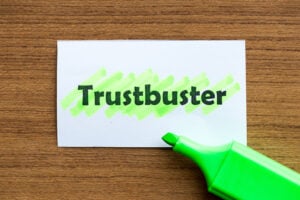
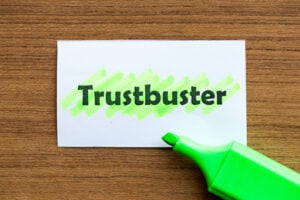

 Jordan
Jordan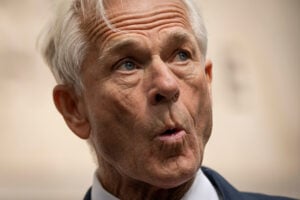

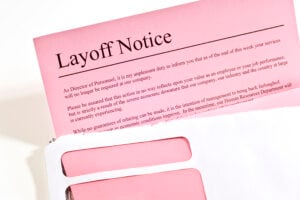



 Chris
Chris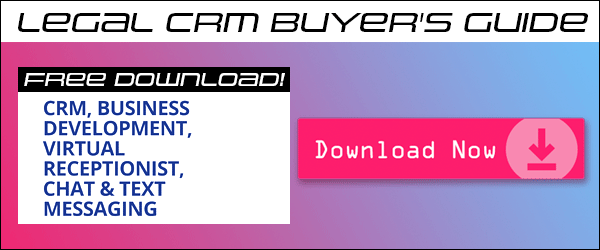



 Kathryn
Kathryn